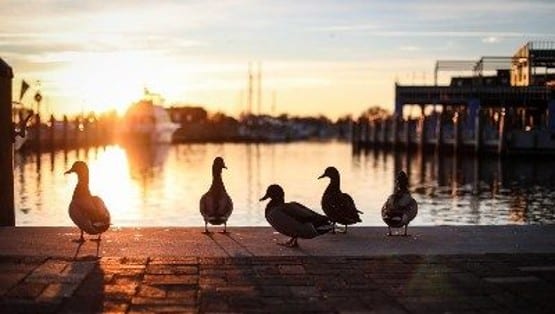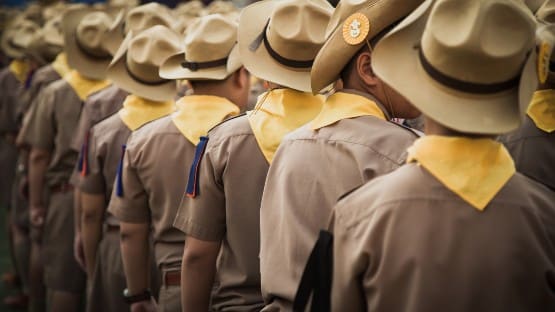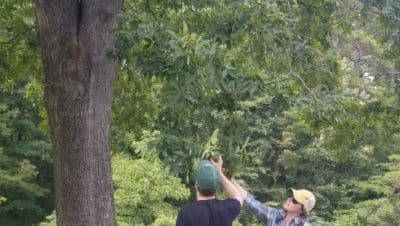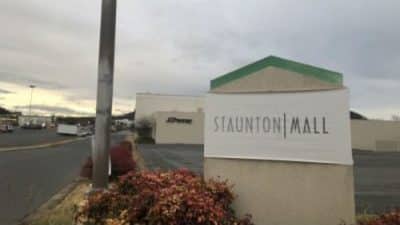
Recently, dozing on a fast-eroding forested bluff overlooking the Chesapeake Bay, I dreamed that I overheard God talking to Earth goddess Gaia, so named by the Greeks.
I sure hope it was just a dream.
God spoke first, as usual.
God: Hey G, haven’t talked to you in ice ages! Nice Bay you’ve assembled here in the last few thousand years. I hope your humans treasure it, because estuaries like this are brief in the geologic scheme of things. There’s a very perspicacious human, oceanographer Jerry Schubel, who wrote: “Estuaries come and go with the ebb and flow of the Ice Ages.” He’s right. For nearly 90% of the time, the globe’s water is tied up in glaciers. The oceans recede to their basins, unable to flood the continental edges with bays like the Chesapeake.
Gaia: These humans don’t know how to treat a lady! More than half a century since the first Earth Day, and a pandemic’s been their only way to really shut down air and water pollution.
Their scientists have begun to call this most lovely interglacial period the Anthropocene instead of its more proper name, the Holocene. That’s because they’ve mucked up the Chesapeake and the planet with what they call “progress.”
God: But isn’t this polluting proliferation of hairless apes what you planned all along? You know, getting humans to help with that “carbon thing”?
Gaia: Well, carbon in all its forms has always been the way to sweep this girl off her feet, and I’m not talking diamonds.
I have embraced that sixth element of the periodic table for 3 billion years. Every cell in the human body — indeed, every living cell on Earth — relies on carbon. Carbon is everywhere: in the paper of the Bay Journal and the blood of our bodies. It’s with us from beginning to end, present in our baby clothes and our coffins alike.
And, truth be told, greening and sustaining and evolving this planet eon after eon was beginning to wear me out. Too much of my carbon was ending up underground, billions of years of organic matter from growing forests and algae and swamps all decaying, turning to coal and oil and methane, buried deep, out of my grasp. I wanted to feel young and vital again, to get my essential building materials back into circulation.
God: I coulda just hit the reset button, if you’d asked.
Gaia: God, no! That giant asteroid last time was harsh. Poor dinosaurs. They never had a chance to adapt. I decided I would invent a new animal, one clever enough to dig up all my buried carbon, to get my life stuff back into circulation even if it wasn’t good for them in the long run.
God: So you mean all those earnest folk who fill the pews on Sundays, seeking the meaning of life, don’t know their true purpose is to mine, to pump, to frack and burn, to drive their SUVs like there’s no tomorrow? And what happens next, Momma G? Because your plan has enabled the population growth of way more carbon recirculaters than this planet can sustain — 8 billion, headed for 10 and more. And I’m all out of spare Earths. Sure you wanna nix that asteroid?
Gaia (having the last word, as usual): I’ve got a plan. Before you head off to tend your other worlds, Lord, look out there across that long and lovely Chesapeake edge of land and water, woods and marsh, blue herons wading and rockfish jumping — some 11,000 miles in all. It’s where people want to live — waterfront real estate! Worldwide, close to half of them, billions and billions, have settled near coastlines.
I’ve been luring them there for 3,000 years, ever since sea level stopped rising after the last ice age and the Chesapeake was fully formed. That’s long enough that they all figured it was safe to build their civilizations right on the coasts.
And now that they’ve done such a fine job of unearthing my buried carbon, the climate’s warming, the Antarctic’s melting and the seas are rising. They’ll cope, but not before many of their communities are under water. And there will be some mass migrations, wars, plagues … you know the drill. Bottom line is I’ll have more carbon to regreen this place and fewer humans to mess with my handiwork.
And just maybe, a few million Earth Days from now, after several Chesapeakes have come and gone with the advance and retreat of the ice, they’ll learn to worship the sun again, to leave the carbon to their Mother, not evaporate it into the atmosphere. God only knows I’m out of patience; but I’m not out of hope.
Tom Horton has written about the Chesapeake Bay for more than 40 years, including eight books. He lives in Salisbury, where he is also a professor of Environmental Studies at Salisbury University. His views do not necessarily reflect those of the Bay Journal. This article was first published in the May 2023 issue of the Bay Journal and distributed by the Bay Journal News Service.










